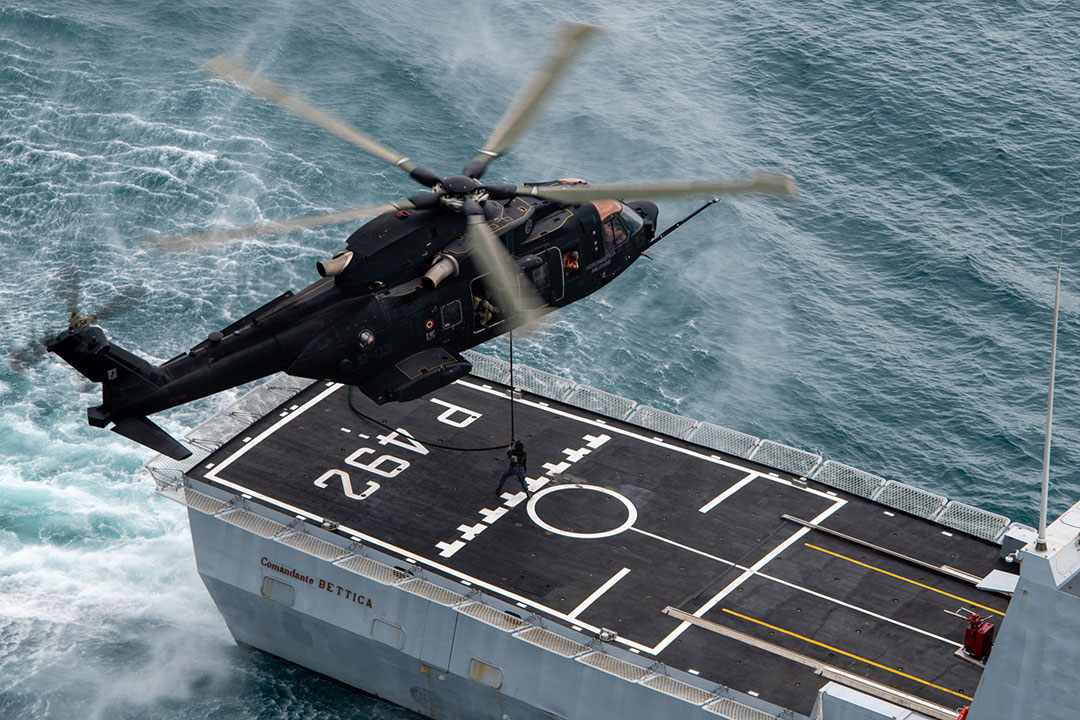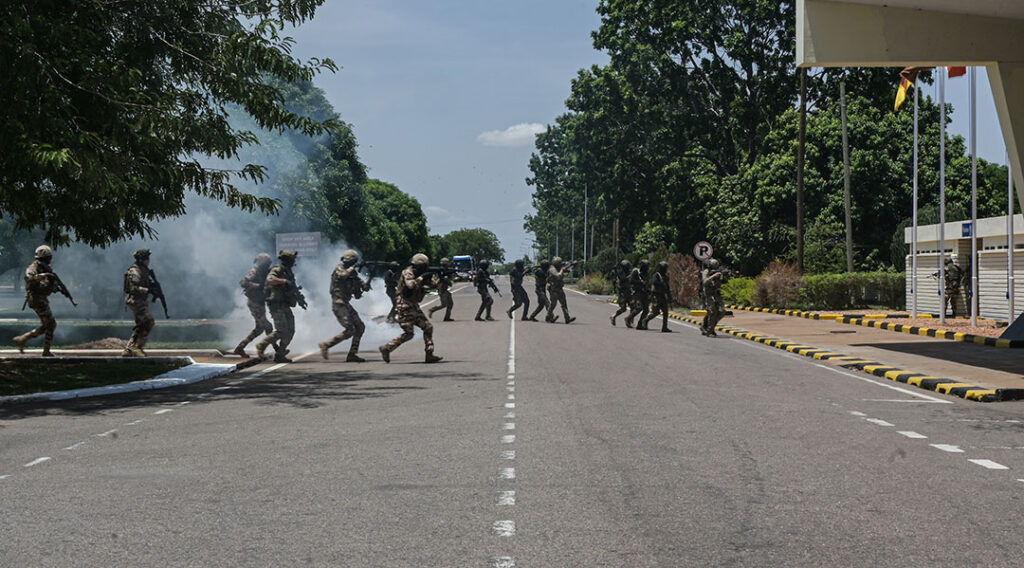ADF STAFF
Dozens of Soldiers streamed into the airport terminal in northern Ghana with helicopters circling overhead and smoke grenades providing cover.
The dramatic simulated raid in Tamale was the climax of this year’s 11-day Exercise Flintlock and led into the closing ceremony on May 24.
Ghana’s Maj. Gen. Bismarck Kwasi Onwona, chief of the Army Staff, acknowledged that terrorism has gradually spread to West Africa’s coastal regions but was quick to express confidence in the collaboration fostered during the exercise.
“Flintlock 2024 is an opportunity for African nations to partner with countries like the United States and other international countries to train and exercise in areas to fight against terrorism which has become a threat around our region,” he said after the demonstration in Tamale, according to independent Ghanaian newspaper the Daily Guide.
Flintlock is U.S. Africa Command’s largest annual special operations exercise. About 1,300 participants from nearly 30 African and international partner nations gathered in Ghana and Côte d’Ivoire, which co-hosted for the second year in a row.
The exercise aims to strengthen cooperation on a number of transregional security issues and boost the ability of partner nations to conduct cross-border security operations, counter violent extremism and ensure the operational readiness of special forces.

“The Ghana Armed Forces [GAF] is proud to be hosting this exercise, the biggest of its kind in Africa, for the second time running,” GAF Brig. Gen. Kweku Dankwa Hagan said during the opening ceremony. “And I believe this is an indication of the healthy and enduring partnership we have strived to establish and constantly develop over the years.
“The exercise objectives are to facilitate cooperation on transnational security, enhance interoperability, and ensure the coordination, formation and deployment of joint operations.”
Introduced in 2005, the exercise is conducted by U.S. Special Operations Command Africa. This year’s edition featured training sites in and around Ghana’s capital, Accra; Tamale in the Northern region; and Damongo in the Savannah region.
From May 13 to 18, joint forces conducted a variety of tactical drills such as countering a simulated village raid, driving skills, and simulated casualty evacuations in Jacqueville, Côte d’Ivoire.
Ghanaian, Tunisian and Libyan special operations forces trained on visit, board, search and seizure protocols with the Italian Air Force and Navy off the coast of Takoradi, Ghana, on May 16.
Members of the GAF and the U.S. Army evaluated and treated Ghanaian citizens at a medical civil action program in Sogakope, Ghana, on May 18 and 19.
Royal Moroccan Armed Forces Soldiers and gendarmes worked on identifying and clearing improvised explosive devices and conducted tactical shooting range training and amphibious special operations training in Daboya, Ghana, on May 21.
Flintlock 24 also featured a Women, Peace and Security initiative, a rule-of-law panel discussion, and a dental civil action program in local villages.
“Flintlock to us is an opportunity to test the combat readiness of our SOF community, which includes planning for logistics acquisition, respect for the rule of law and now equally and importantly the promotion of human security,” Ghana Army chief of training Col. George Dottey said.
Dottey said the exchange of best practices on such a wide array of operations details made the exercise special.
“In as much as we should train the way we fight, training sessions allow us some flexibility to adjust our efforts, to synchronize interoperability, and to correct tactics, techniques and procedures,” he said in a video interview.
“In effect, Flintlock is making it possible for us in the subregion to maintain contact, exchange ideas and share information. Therefore, it helps to improve security on the continent.”

